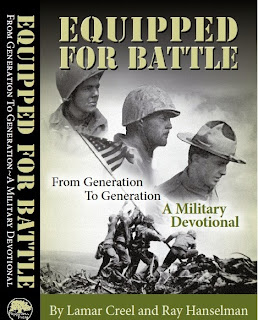While sitting at the second
of two banquets given by Queen Esther to King Ahasuerus and Haman,
the king asked her what she desired up to half the kingdom. As Esther
began her answer to the king's question, she revealed that her life
and the lives of her people were in danger of extinction. In chapter
seven and verse four we learn more of Esther's request and watch as
she acts upon her “moment such as this”. We read:
For we are sold, I and
my people, to be destroyed, to be slain, and to perish. But if we had
been sold for bondmen and bondwomen, I had held my tongue, although
the enemy could not countervail the king's damage.
The
verse begins, “For we are sold, I and my people, to be
destroyed, to be slain, and to perish.” The
perspective of Esther is interesting in this statement, “For
we are sold.” As those who
have been bought for a price, Esther believes that she and her people
have become like cattle in an auction or slaves on a block. Even
worse, they are bought “to be destroyed, to be slain, and
to perish.” Their fate was a
mortal one in which the purchaser only did so that they might be
eliminated. We might recall that Haman offered King Ahasuerus “ten
thousand talents of silver” for the losses that might be
incurred because of the lack of their labor, and even so, the king
himself paid the tariff for the threat of their existence.
The verse goes on to say,
“But if we had been sold for bondmen and bondwomen, I had held
my tongue,...” Esther adds to
her comments by suggesting that it would have been less difficult if
they had been bought simply to be slaves. Her trouble was not as much
that they had been bought, but in the purposes for which they were
purchased. They were purchased to be killed and not to be used as
slaves.
Finally
she adds, “although the enemy could not countervail the
king's damage.” In other
words, if Esther and her people would have been banished to be slaves
it would not be sufficient enough of a matter to attempt to overcome
the king's decision. If this had been the case, the trouble caused by
complaining to the king would have been more trouble to him than
simply accepting the position of servants.
Let
us imagine the king and Haman's faces as Esther is telling the king
these words. Basically she is implicating one person as an enemy
against her and her people, and since the king loved Esther more than
any other maiden that appeared before him, we might imagine his blood
beginning to boil. Whenever there is an attack against someone we
love we are inclined to position ourselves in protection mode, and
whenever we are implicated for doing wrong, we also cling to safety.
King Ahasuerus is wondering who is doing this to his bride and her
people, and Haman knows that he is the man. As we remember that God
Almighty is acting behind the scenes, we know there is more of this
story to come, but we shall wait until next time to have more of it
revealed.
Next
time we will watch as the king ask who did this, so read ahead, and
we shall join together then.
Until
tomorrow...there is more...
Look
for the daily devotional book “Equipped for Battle – From
Generation to Generation” and the new marriage book “So, You Want
to Be Married” in all major bookstore sites, www.amazon.com ;
www.barnesandnobles.com ; download to e-books, and find it locally at
www.mrzlc.com/bookstore



























